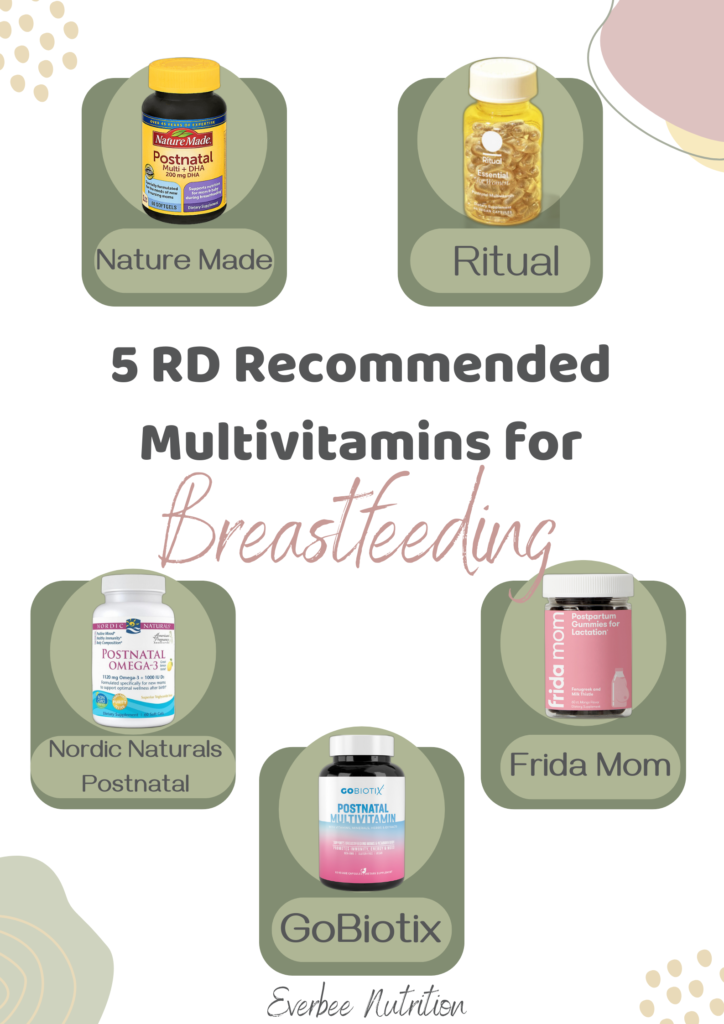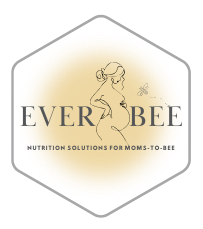
Vitamins for Breastfeeding Mothers
The postpartum period is a time of physical recovery for you, during which your body undergoes significant changes following pregnancy and childbirth. Deciding which vitamins for breastfeeding mothers are best would be the last thing to worry about. Your nutrition plays a crucial role in supporting your recovery by providing the necessary nutrients for tissue repair, replenishing nutrient stores depleted during pregnancy, and promoting overall healing. Nutrient-rich foods supply the energy, vitamins, minerals, and antioxidants needed to support your body’s healing processes and restore your health. Sometimes we do not get enough, so we might need vitamins for breastfeeding mothers.
Adequate nutrition during the postpartum period can help you recover more quickly, regain strength and energy, and better cope with the demands of caring for a newborn. Breastfeeding mothers have increased energy requirements compared to non-breastfeeding women due to the energy expended in milk production and breastfeeding. Additionally, lactation increases the body’s demand for certain nutrients, including protein, calcium, iron, zinc, vitamin B12, vitamin D, and omega-3 fatty acids. Consuming a varied and nutrient-dense diet ensures breastfeeding mothers meet their increased energy needs and nutrient demands, supporting optimal milk production, maternal health, and overall well-being. This guide is going to discuss the best vitamins for breastfeeding mothers.
Breastfeeding for Baby’s Health
As a breastfeeding mother, your role in providing proper nutrition is paramount. It supports your health and well-being and directly impacts your infant’s growth, development, and long-term health outcomes. Breast milk, which you produce, is the primary source of nutrition for infants during the first months of life. It provides essential nutrients, antibodies, and immune factors crucial for their growth, development, and protection against infections. Your adequate nutrition ensures the production of high-quality breast milk that meets their nutritional needs. Nutrient-rich foods you consume provide the raw materials for synthesizing breast milk components, including proteins, carbohydrates, fats, vitamins, and minerals. Your well-balanced diet supports optimal milk production and ensures that breast milk is nutrient-rich, promoting healthy infant growth and development.
Vitamins to Bridge the Gap
The journey of motherhood is a remarkable experience filled with love, joy, and profound responsibility. As a breastfeeding mother, you are providing your newborn with the best start in life by nourishing them with breast milk. However, supplementing the diet with vitamins might be needed to fill in gaps. This extensive guide will delve deeply into vitamins for breastfeeding mothers, exploring their importance, benefits, sources, and practical tips to ensure you and your baby thrive during this special time.
Vitamins Working for Us
Vitamins are indispensable for maintaining overall health and well-being, and their importance is amplified during pregnancy and lactation. Each vitamin serves a specific function in the body, contributing to processes such as immune function, energy metabolism, tissue repair, and neurological development. For breastfeeding mothers, meeting the recommended intake of vitamins is essential to support their health and provide optimal nutrition for their infants through breast milk.
Specific Vitamin for Breastfeeding Moms:
While all vitamins are important, certain vitamins play significant roles during lactation. Vitamin D, for example, is crucial for bone health and immune function, both for the mother and the infant. Similarly, vitamin B complex vitamins are essential for energy metabolism and neurological function, supporting maternal well-being during the demanding postpartum period. Understanding these specific vitamin needs is essential for breastfeeding mothers to prioritize their nutritional intake effectively.
Impact of Maternal Vitamin Status on Infant Health:
The maternal diet directly influences the composition of breast milk, making it imperative for breastfeeding mothers to maintain adequate nutrient intake. Research suggests that maternal vitamin deficiencies can compromise the nutritional quality of breast milk, potentially affecting infant health and development. Breastfeeding mothers can provide their infants with essential nutrients necessary for growth, immune function, and neurological development by ensuring optimal vitamin status. Making sure you maintain adequate nutritional status during pregnancy is important. During pregnancy, you can speak to a pregnancy nutritionist (dietitian) to see how to meet your individual needs. You can read more about the role of a pregnancy nutritionist here: https://everbeenu.com/fueling-the-journey-the-vital-role-of-a-pregnancy-nutritionist/
Vitamin A:
Vitamin A is a fat-soluble vitamin known for its role in vision, immune function, and cellular growth and differentiation. Adequate vitamin A intake is crucial for breastfeeding mothers to support postpartum tissue repair, maintain immune resilience, and promote healthy skin and vision. Sources of vitamin A include liver, sweet potatoes, carrots, spinach, and fortified dairy products. Vitamin A’s importance can help breastfeeding mothers prioritize foods rich in this essential nutrient.
Vitamin D
Often referred to as the “sunshine vitamin,” vitamin D is essential for calcium absorption, bone health, and immune function. Breastfeeding mothers must ensure sufficient vitamin D intake to support their bone health and provide optimal vitamin D levels for their infants through breast milk. Sources of vitamin D include fatty fish, fortified dairy products, egg yolks, and exposure to sunlight. Supplementing with vitamin D may be necessary, particularly for mothers and infants with limited sun exposure.
Vitamin B Complex:
The B vitamins, including thiamine (B1), riboflavin (B2), niacin (B3), pantothenic acid (B5), pyridoxine (B6), biotin (B7), folate (B9), and cobalamin (B12), play essential roles in energy metabolism, nervous system function, and red blood cell production. Breastfeeding mothers require adequate B vitamins to support their energy levels, aid in postpartum recovery, and ensure optimal neurological development in infants. Dietary sources of B vitamins include whole grains, leafy greens, legumes, nuts, seeds, and animal products.
Vitamin C:
Vitamin C is a potent antioxidant that supports immune function, collagen synthesis, and wound healing. Adequate vitamin C intake benefits breastfeeding mothers by enhancing milk production and protecting both mother and baby from infections. Citrus fruits, strawberries, kiwi, bell peppers, and broccoli are excellent sources of vitamin C to include in the maternal diet. Prioritizing vitamin C-rich foods can help breastfeeding mothers maintain optimal health during lactation.
Vitamin E:
Vitamin E is a fat-soluble antioxidant that protects cells from oxidative damage and supports immune function. Adequate vitamin E intake is essential for breastfeeding mothers to promote different functions. These functions include breast tissue health and alleviate symptoms of breast discomfort or inflammation. Sources of vitamin E include nuts, seeds, vegetable oils, leafy greens, and fortified cereals. Incorporating these foods into the maternal diet can help optimize vitamin E levels during lactation.
Vitamin K:
Vitamin K plays a crucial role in blood clotting and bone metabolism. This makes it essential for both maternal and infant health during the breastfeeding period. Adequate vitamin K intake ensures proper blood coagulation in newborns and supports maternal bone health postpartum. Dietary sources of vitamin K include leafy greens, broccoli, Brussels sprouts, fermented foods, and some animal products. Vitamin K’s importance can help breastfeeding mothers prioritize foods rich in this essential nutrient.
We will explore the benefits vitamins offer breastfeeding mothers. We will highlighting their role in supporting maternal health, enhancing infant nutrition, and promoting overall well-being. By understanding these benefits, mothers can prioritize their nutritional intake during lactation to optimize their own health and the health of their infants.
Enhanced Immune Function:
Adequate intake of vitamins such as vitamin C, vitamin D, and vitamin E strengthens the immune system. It reduces the risk of infections for both mother and baby. This is particularly crucial during the postpartum period when the mother’s body is recovering and the infant’s immune system is still developing. Prioritizing immune-supportive vitamins can help breastfeeding mothers maintain optimal health during lactation.
Improved Nutrient Transfer:
Vitamins are crucial in ensuring optimal nutrient transfer from mother to baby through breast milk. Breastfeeding mothers can provide their infants with essential nutrients necessary for growth, immune function, and neurological development by maintaining adequate vitamin levels. Understanding the importance of nutrient transfer can help mothers prioritize their own nutritional intake. With this knowledge, mothers can support infant health during lactation effectively. Continuing to take prenantals after pregnancy is an easy way to maintain vitamins status. What to expect has a great comparison chart of vitamins. https://www.whattoexpect.com/baby-products/pregnancy/best-prenatal-vitamins-buy-over-counter/
Postpartum Recovery:
The childbirth process places significant strain on the mother’s body, and adequate vitamin intake supports postpartum recovery. Vitamins such as vitamins A, C, and E aid in tissue repair, wound healing, and skin health, helping mothers bounce back more effectively after childbirth. Prioritizing vitamins that support postpartum recovery can help breastfeeding mothers navigate the challenges of the postpartum period with greater ease.
widely available in pharmacies, grocery stores, and online platforms, making them convenient for new mothers to access.
- Nature Made:
Nature Made is a well-known and trusted brand in the supplement industry, providing high-quality products for decades. Their postnatal vitamins typically contain essential nutrients like folic acid, iron, calcium, and vitamin D, crucial for postpartum recovery and breastfeeding support. Nature Made uses carefully selected ingredients, often meeting stringent quality standards, ensuring safety and efficacy for nursing mothers. Nature Made products are widely available in pharmacies, grocery stores, and online platforms, making them convenient for new mothers to access. https://www.naturemade.com/ - Ritual:
Ritual emphasizes transparency in their sourcing and manufacturing processes, providing peace of mind to consumers. Ritual offers a seamless transition from prenatal to postnatal vitamins, catering to the evolving nutritional needs of mothers during and after pregnancy. Ritual’s postnatal vitamins are formulated without unnecessary additives, synthetic fillers, or colorants, appealing to those seeking clean and minimalist supplements. Ritual’s subscription model ensures convenience and consistency in receiving postnatal vitamins, simplifying the replenishment process for busy mothers. https://ritual.com/products/essential-postnatal-multivitamin - Nordic Naturals:
Nordic Naturals specializes in omega-3 supplements, which are beneficial for postpartum health, including mood support and cognitive function. Nordic Naturals sources its fish oil from sustainably caught fish, ensuring purity and potency, with rigorous testing for contaminants like heavy metals and PCBs. Many Nordic Naturals postnatal formulas include vitamin D, vital for bone health and immune function, particularly important during the postpartum period. Nordic Naturals products undergo third-party testing to verify potency and purity, meeting or exceeding industry standards. https://www.nordic.com/ - GoBiotix:
GoBiotix postnatal vitamins often include probiotics, beneficial for gut health and immune function, which may benefit both the mother and the breastfeeding infant. Digestive Health Focus: With ingredients like fiber and enzymes, GoBiotix postnatal supplements support digestive health, addressing common postpartum issues like constipation or bloating. GoBiotix offers vegan-friendly postnatal vitamins, suitable for mothers adhering to plant-based diets or with dietary restrictions. GoBiotix recognizes the importance of the gut-brain connection in overall health, offering postnatal supplements designed to support both physical and mental well-being https://gobiotix.com/products/postnatal-vitamins?variant=39257360597079 - Frida Mom:
Friday Mom’s postnatal vitamins are specifically designed to address the nutritional needs of breastfeeding mothers, focusing on nutrients like vitamin B12, iodine, and DHA. With ingredients like fenugreek and fennel, Friday Mom supplements may help support lactation and milk supply, addressing common concerns of nursing mothers. Friday Mom offers allergen-free postnatal vitamins, suitable for mothers with sensitivities or allergies to common allergens like gluten, soy, or dairy. https://frida.com/


Pingback: The Best Hydration Drinks For Breastfeeding Mothers - Everbee Nutrition